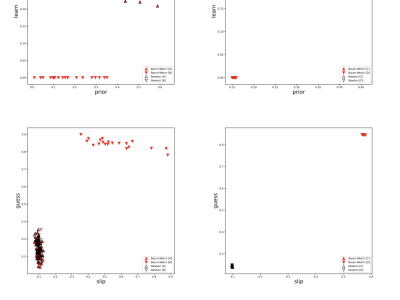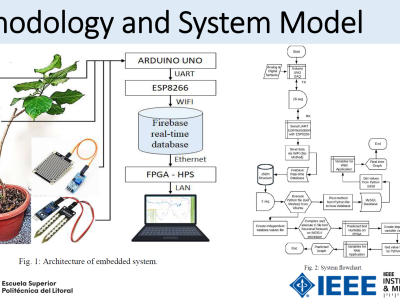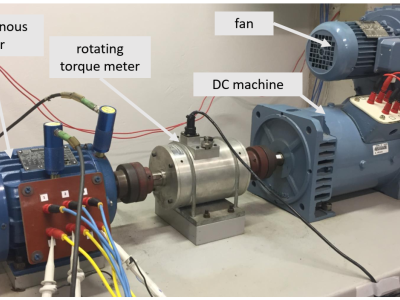Inferring Bayesian Knowledge Tracing Parameters Using Classical Expectation-Maximization and a Novel Newton Method-Based Approach

- Citation Author(s):
-
Denis Shchepakin (Amazon)Dawn Zimmaro (Amazon)
- Submitted by:
- Sreecharan Sankaranarayanan
- Last updated:
- DOI:
- 10.21227/5xcd-3p25
- Data Format:
 103 views
103 views
- Categories:
- Keywords:
Abstract
Simulated dataset for deriving parametric constraints for Bayesian Knowedge Tracing. The classical Expectation-Maximization method results in degenerate parameters (i.e., parameters that violate the conceptual interpretation of the model, such as by saying that a learner with no knowledge of a skill is more likely to get an answer correct than a learner with knowledge). A novel approach based on Newton's method rescues these paramters using mathematically derived constraints on the parameter space.
BKT model fitted to 100 simulated datasets using classical Baum-Welch algorithm and proposed EM-Interior Point method. The data was simulated using the same value of parameters: P(L_0)=0.45, P(R)=0.3, P(S)=0.1, and P(G)=0.25. For each dataset both algorithms used the same random initial parameter guesses. There were 80 datasets for which fitted parameters satisfied the parameter conditions for both algorithms. For the remaining 20 datasets, the fitted parameters did not satisfy the conditions when Baum-Welch algorithm was used,cbut they were rescued by EM-newton method (hollow black downward triangles).
BKT model fitted to the same dataset from 100 different initial parameter guesses using classical Baum-Welch algorithm and proposed EM-Newton method. The data was simulated using the same parameters values as above. There were 80 initial guesses that converged to parameters satisfying the conditions for both algorithms, and 20 initial guesses that converged to parameters satisfying the conditions only for EM-Newton algorithm. Note that for this simulation, the parameter estimates have lower accuracy but higher precision.
Instructions:
classical_different_datasets.pickle and newton_different_datasets.pickle have the first set of simulated data using the classical EM and the proposed Newton EM methods. classical_same_dataset.pickle and newton_same_dataset.pickle have the same data but with different initial parameter guesses.







